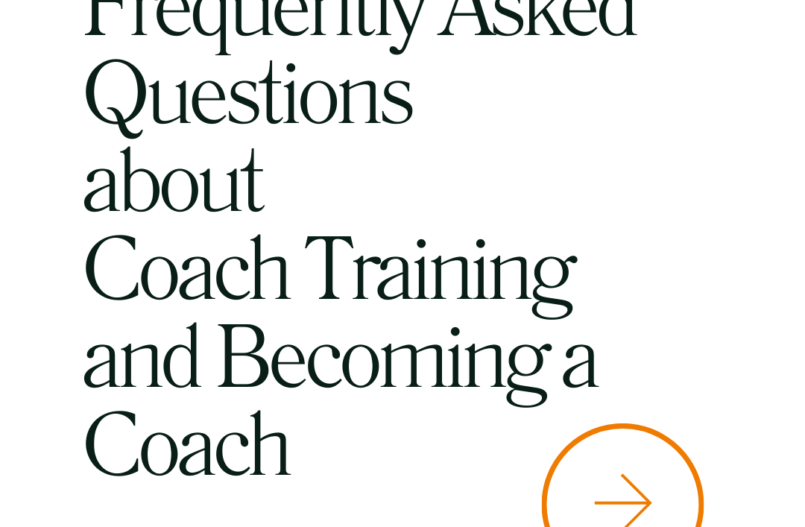We have regular conversations with people who are interested in becoming professional coaches. In this chapter we want to tackle some of the questions that pop up the most. After reading this article you will be able to make an informed decision about whether a coaching career is right up your alley and whether coaching certification is worth it.
Do I have to get certified at all? Are there real perks with certification? Can I just take a free online course and become a coach?
One of the blessings (and curses) of the coaching profession is its accessibility. Unlike some professions that require university degrees or state licenses, becoming a certified coach has a shorter, more straightforward path. However, as the industry matures, the importance of formal training becomes more evident. While private clients may prioritize personal connection over certification, coaching platforms and business/organizational clients often seek coaches with solid training. The coaching profession has established itself with clear standards and a code of ethics. It’s not uncommon for self-taught individuals to inadvertently blur the lines between coaching, therapy, consulting, and other helping professions, potentially compromising client well-being and the reputation of the coaching profession.
How tough is the competition out there? Seems like everyone’s got a coaching certificate.
It might seem daunting for new coaches to enter a market where experienced professionals are already established. Instead of fixating on the competition, concentrate on the people you want to help, the positive change you aim to create, and how to direct your energy toward achieving those goals. If you provide value, clients will choose you, regardless of the competitive landscape. The next section of this guide serves as a roadmap for building your coaching practice. Establishing a practice will demand some entrepreneurial skills, and with the right focus and support, you can navigate this journey successfully.
Does the financial investment in coaching certification pay off? Is there a financial aid?
If you’re committed to advancing your coaching practice, the investment is worthwhile. Certification provides access to new career paths and helps you gain credibility. Success doesn’t come overnight, but with intention and effort, it’s achievable for everyone. At UpThink Coaching we have done our best to offer you one of the most affordable, high-quality coach training programs in the market. You can read about our special deals here.
How much time do I need to commit each week? I’m juggling a bunch of things already.
Many of our coaching students are working full-time, and we strive to maintain a balance between providing high-quality training and a reasonable time commitment. Our live online classes require 4 hours per week, and it’s beneficial to allocate an additional 1-2 hours in your schedule for coaching practice and reflection – this is crucial for optimal learning. Though committing to two classes per week requires dedication, you can achieve full certification in less than 4 months, preparing you to fully immerse yourself in your coaching journey.
How can I tell if a coaching certification program is the real deal?
All ICF-approved programs go through a rigorous accreditation process that spans weeks and months. They do the work for you, ensuring that the program, curriculum, faculty, training materials, and student support adhere to international standards. Take time to read alumni testimonials, see what your selected school or trainers have to offer, schedule some “no commitment” discovery calls. Clearly define your selection criteria and what matters to you.
Do I have to pick a specialty right away, or can I take my time figuring it out? I’m not set on a specific group to coach.
Either option is valid; you don’t need to have it all figured out from the start. Allow yourself the time to discover the type of people you enjoy coaching the most. Sometimes, your niche may find you. Read on for some guidelines on identifying your sweet spot.
Got More Questions?
We remember what it feels to be new to coaching. It may sound confusing, and it is ok to have questions. Schedule a no-commitment discovery call to get answers to all your questions.
You may also find this article helpful: “How to become an ICF-certified coach online.“

